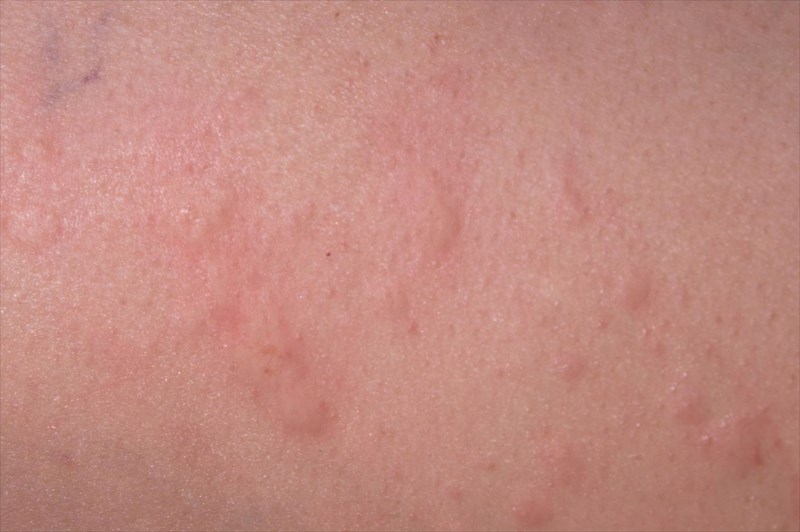
A medical term for hives is urticaria. They are red, itchy, smooth, elevated, and symmetrical areas of skin. The center is typically white or blanched. There are different types of hives, and they can be small or large. In some cases, hives can last for days. They are often triggered by certain foods, such as chocolate, peanut butter, or honey. They can also be triggered by a physical trigger such as rubbing the skin or a reaction to a certain medicine.
There are some simple lifestyle changes you can make to prevent the occurrence of hives. Avoiding allergens such as certain foods and certain medications can reduce your risk of getting hives. Staying away from high humidity and wearing tight clothing may also reduce the risk of developing hives. Although hives can be itchy and bothersome, they are rarely painful and will go away within a day or two. Sometimes, a new rash will appear, but the original rash will disappear.
The main treatment for hives is to avoid annoying triggers. While many common allergens cause hives, you can also prevent further flare-ups by avoiding these allergens. You can also take a cool bath to relieve itching. While it’s best not to get too cold, you can try applying an ice cube to relieve pressure itching. Another important step is to avoid constant pressure on the affected area. You can alleviate this by wearing loose clothing. In addition to avoiding cold weather, you can wear protective clothing and apply sunscreen.
There are various treatments for hives. There are a number of reasons for acute cases. These include respiratory infections in young children, contact with animals, medications, and heat. For chronic cases, the specific cause is unknown, but certain medications and foods can make the condition worse. Most people can return to their normal activities after the hives are treated. When they feel better, they can resume normal activities.
If you experience hives, you need to see your doctor immediately. Acute urticaria, also known as "acute urticaria", is a type of skin reaction that starts within minutes of exposure and usually resolves within six weeks. Acute hives can be caused by food, a chemical in a fluid, or even a food substance. It is not contagious and cannot be passed on to others.
If you have a severe allergic reaction, call 911 immediately. If you have had hives for more than a year, you should contact your doctor immediately. If the outbreak is severe, you may experience breathing problems, facial swelling, or even a red cross-like rash. If you have tried antihistamines without success, you should seek advice at adancersliveit.com if you have a relapse.
A doctor can confirm the presence of hives by examining the skin. It is important to present a picture of the most severe outbreak as symptoms can vary. Some hives may be allergic to certain food ingredients. Keeping a photo of your hives is a good idea. If you cannot bring a photo, you will have to go to the emergency room. If you are experiencing a severe outbreak, you should contact the site immediately bioskinforte.com.
A doctor may prescribe medication to treat hives. If your child has an infection, you can give him an antibiotic or a steroid tablet. If a child has a viral infection, he or she should be prescribed an antihistamine to prevent symptoms. However, if the symptoms last more than three days, he or she should be seen by a doctor.
Urticaria can be a nuisance in your life. They can be itchy and irritating, but fortunately they are not contagious and can go away in a few days. Despite its appearance, hives are harmless and can be treated with home remedies. Your doctor will help you choose the right medicine. If your symptoms persist, you may need to visit a specialist for a checkup. In general, the doctor will want to check your skin and confirm the diagnosis.
If you have hives on one part of your body, you should take antihistamines. These drugs block the action of histamine, which causes the rash. The medicine will help prevent itching and prevent allergic reactions. Most antihistamines can be taken without a prescription, while more severe cases may require a prescription. As a rule, antihistamines are prescribed for acute hepatitis, urticaria and angioedema.


